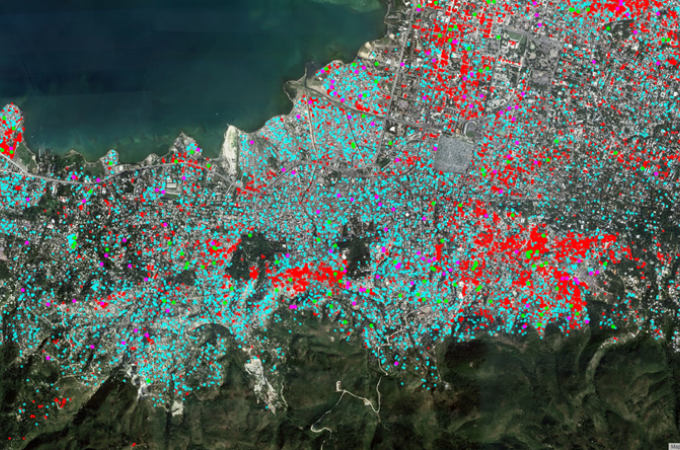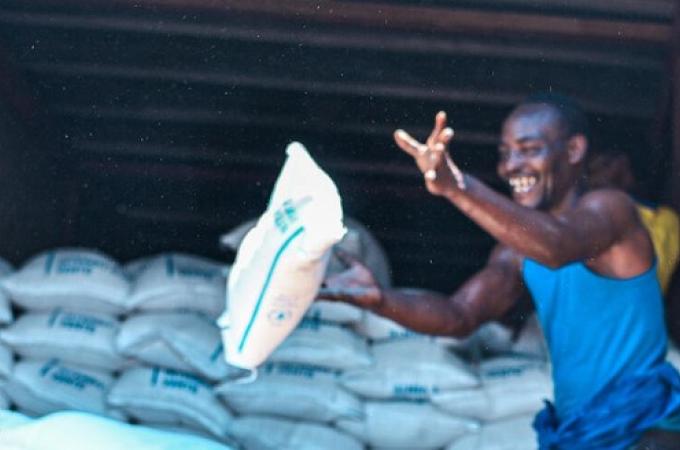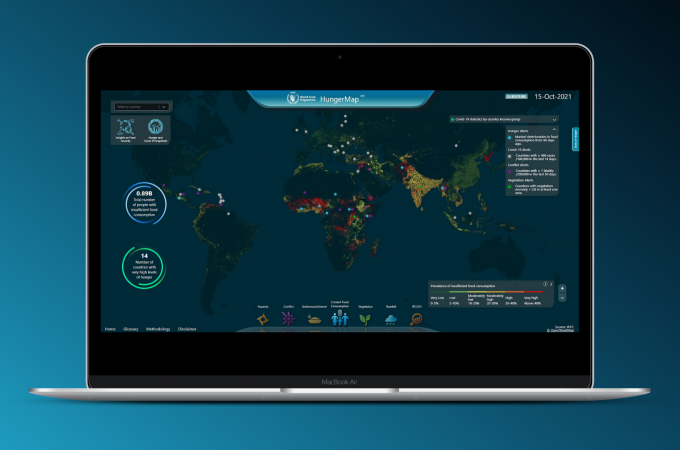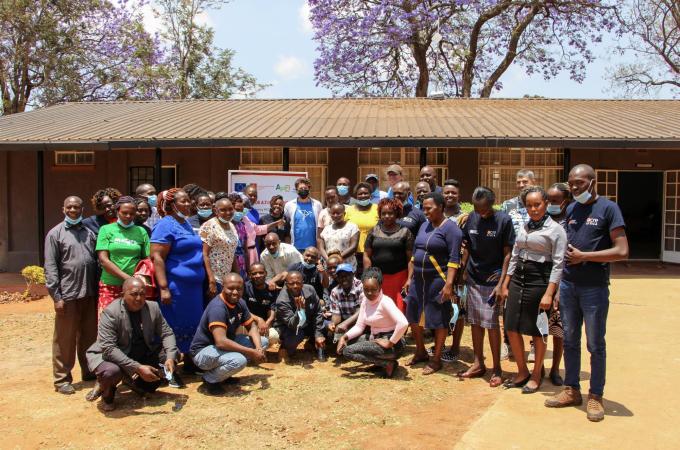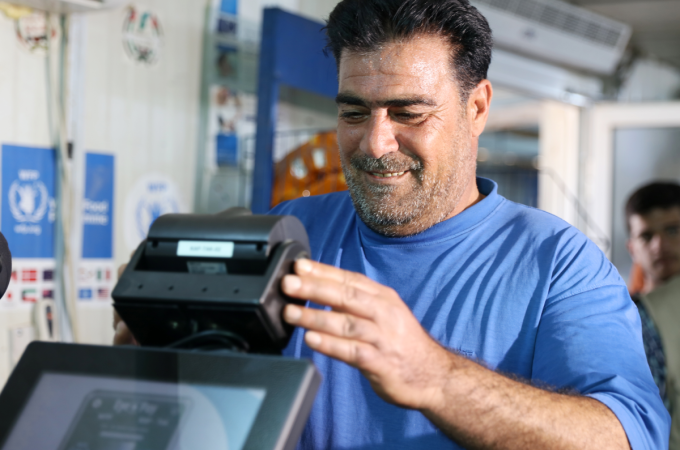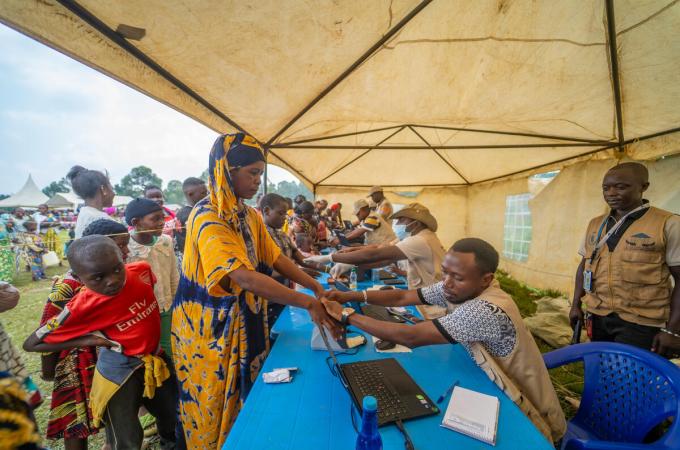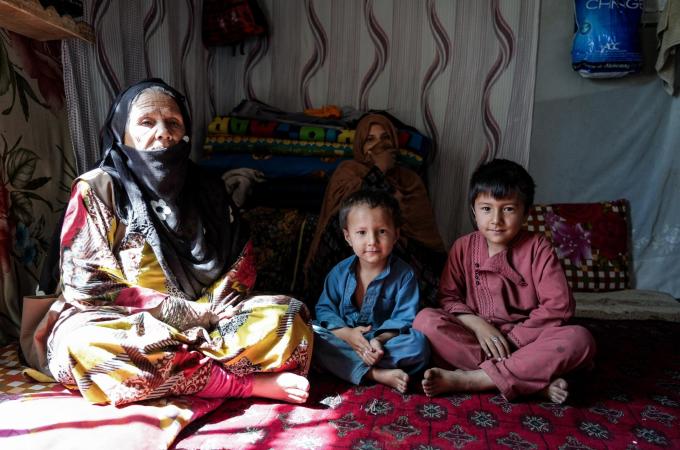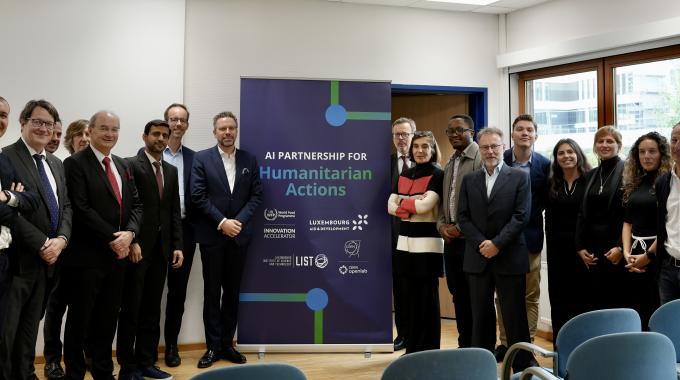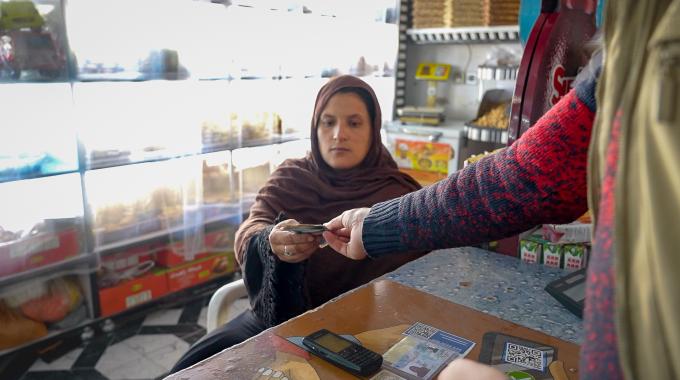New technologies are rapidly developing and deeply transforming our lives and the world we live in, including humanitarian aid. At the WFP Innovation Accelerator, the Frontier Innovations team explores and implements game-changing innovations and cutting-edge technologies, such as artificial intelligence (AI), blockchain, web3, fintech, autonomous vehicles and robotics, to support humanitarian and development assistance and deliver efficiency and effectiveness gains to WFP operations.
Artificial intelligence
AI helps WFP tackle global food insecurity by enabling more efficient decision-making and resource distribution. The Frontier Innovations team leads the research, development and piloting of humanitarian AI solutions across WFP. By collaborating with startups, businesses, governments, universities and other UN agencies, the team drives innovations ranging from food crisis forecasting to innovative chatbots.
Innovating responsibly with AI
How do we leverage AI for innovation?
We harness the power of AI to combat global food insecurity. Through initiatives like SKAI and EMPACT, we deploy AI in disaster response and digital skills training, empowering communities and enhancing collaboration among all stakeholders.
Our approach is needs-based: all innovations are developed to address challenges identified in the field. They are designed to support WFP staff in their work and enhance the organization’s operational efficiency and effectiveness.
Our approach is needs-based: all innovations are developed to address challenges identified in the field. They are designed to support WFP staff in their work and enhance the organization’s operational efficiency and effectiveness.
What is the impact of our AI-powered innovations?
AI is revolutionizing our fight against global hunger by enabling smarter, faster decision-making and more efficient resource allocation, allowing us to address food insecurity with unprecedented precision.
What ethical principles guide our AI-powered innovations?
We are committed to upholding the highest ethical standards in AI use, guided by UN principles. Our approach ensures that AI is implemented safely, equitably and with full respect for privacy. The UN framework emphasizes accountability, requiring oversight, impact assessments and due diligence to ensure that AI serves humanity responsibly.
What future innovations do we envision with AI?
AI has the power to revolutionize aid by enhancing the efficiency and effectiveness of operations and improving access to food. Looking ahead, we envision further expanding the implementation of AI to anticipate and address emerging humanitarian challenges. By collaborating across WFP and the wider UN system, we use innovative, needs-based approaches that enable teams to develop their own tools and adapt to future demands. With these efforts, we strive to drive ethical and impactful advancements in global food security.
Blockchain
WFP leverages blockchain technology, particularly in cash-based transfers and microfinance, to enhance efficiency, transparency and trust in its assistance efforts. Among our previous projects are Building Blocks and Etherisc.
Currently, WFP operates three blockchain-based initiatives focused on traceability and data assurance for cash-based transfers: Food for Crisis in collaboration with the Global Blockchain Business Council, which seeks to attract new funding for emergency response and advance solutions for more transparent and efficient cash assistance; HesabPay, which enables recipients to redeem WFP assistance in local markets through either cash-out or digital cashless payments; and AIDONIC, designed to efficiently automate operations and increase traceability within WFP’s cash-based transfer programmes.
Currently, WFP operates three blockchain-based initiatives focused on traceability and data assurance for cash-based transfers: Food for Crisis in collaboration with the Global Blockchain Business Council, which seeks to attract new funding for emergency response and advance solutions for more transparent and efficient cash assistance; HesabPay, which enables recipients to redeem WFP assistance in local markets through either cash-out or digital cashless payments; and AIDONIC, designed to efficiently automate operations and increase traceability within WFP’s cash-based transfer programmes.
Frontiers innovations
Frontiers news




